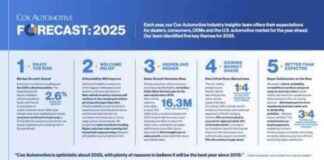Governments at an upcoming IPCC meeting in Hangzhou, China will grapple with contentious decisions regarding the timeline of critical climate science reports and the implications of a potential US withdrawal from the Intergovernmental Panel on Climate Change (IPCC). This pivotal week-long plenary session marks a crucial juncture in the IPCC’s seventh assessment cycle, known as AR7, aimed at synthesizing global climate science into reports on the scientific basis for climate change, vulnerability of human and natural systems, and strategies for mitigating climate change, set for release in 2029.
Struggles Over Timeline
Amidst mounting pressure for the AR7 reports to inform the upcoming Global Stocktake in 2028, mandated by the Paris Agreement, the debate over the delivery timeline intensifies. While some factions advocate for an expedited timeline to align with the Global Stocktake, others, including developing countries like Saudi Arabia, Russia, China, and India, express concerns over the inclusivity and feasibility of a condensed assessment process. The impasse underscores the urgency to reach a consensus during the impending IPCC meeting in Hangzhou.
Delta Merner, an expert from the US-based Union of Concerned Scientists, emphasizes the critical nature of reaching an agreement at the forthcoming summit. Merner highlights the repercussions of further delays, suggesting that inaction could lead to decisions made as a result of failure to act—a sentiment echoed by climate advocates and observers worldwide.
Global Implications of US Withdrawal
Complicating matters further is the reported absence of the US delegation at the Hangzhou talks, following the Trump administration’s move to halt the participation of State Department officials and federal agency scientists. Trump’s previous actions to withdraw from the Paris Agreement and withhold contributions to global climate funds have cast a shadow over US engagement with international climate initiatives.
Kaisa Kosonen of Greenpeace International anticipates shifts in policy priorities among governments in outlining the AR7 reports, alluding to potential divergences in policy relevance and essential components. The absence of US involvement poses challenges to the IPCC’s operational capacity and the scientific assessments critical for informing climate action and policy decisions on a global scale.
Despite the uncertainty surrounding US engagement with the IPCC, the organization’s crucial role in advancing climate science and guiding international cooperation remains undisputed. Contributions from the US, particularly under the Biden administration, have been instrumental in supporting IPCC initiatives and bolstering global climate efforts.
As deliberations unfold in Hangzhou, the outcome of the discussions on publication timelines and report outlines will bear significant implications for the trajectory of global climate action. The imperative to reconcile diverse viewpoints, uphold scientific integrity, and prioritize collaborative solutions underscores the urgency of reaching consensus at this pivotal juncture.
The future of climate science and the effectiveness of international climate governance hinge on the decisions made at the IPCC meeting in Hangzhou, setting the stage for transformative action in addressing the escalating climate crisis. Stay tuned for updates on the outcomes of the deliberations and the implications for global climate resilience and sustainability.














